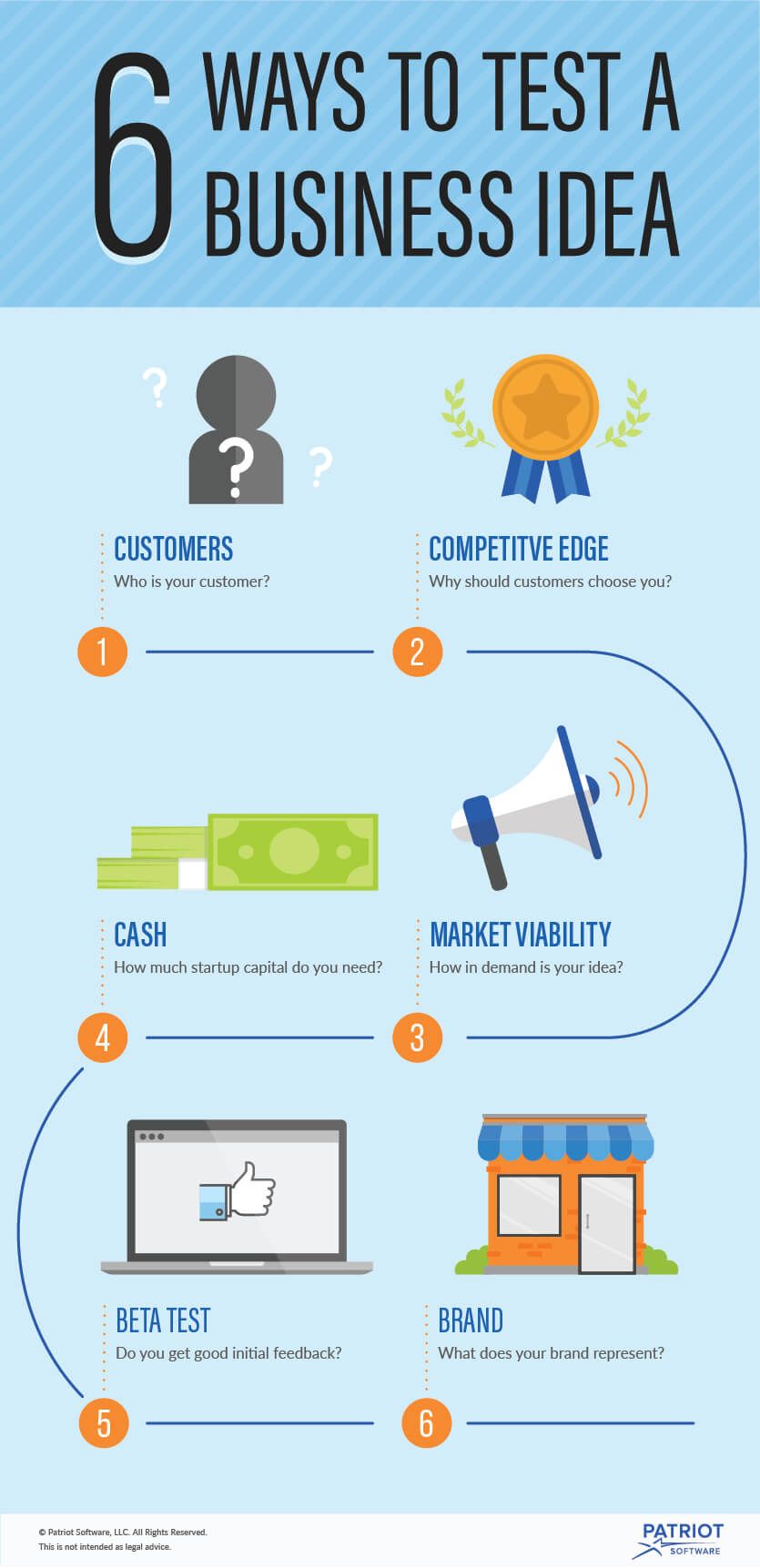You have a great business idea — at least you think you do — and you are ready to be the entrepreneur you’ve always wanted to be. But is your idea truly great, or are your aspirations great and your ideas a bit…meh.
We all have lightbulb moments from time to time, so how do you decide when your moment is worth risking actual investment. When is the time to say yes: I’m doing this, I’m starting a business, I’m setting up an ecommerce store, I’m taking the leap? Testing the market viability of your idea is the first step in making your dream a reality, and in this blog post I’m going to explain just how to do that.
Ask the important questions
The very first thing you should do when considering whether your business idea is viable is to identify and understand your potential audience. Who is your customer going to be?
- What do they look like?
Seriously, get an idea of your customer in your head – or on paper, in fact do both. Once you can see them they become real, and so does your idea.
- What do they do and what is their disposable income?
You need your customers to purchase from you – does their economical situation allow for that? You aren’t a charity – unless of course you are, then go for it!
- Does your business idea solve a problem for them?
What does your idea do for your customers? What does it solve or how does it make their lives better? Once you begin to see your idea from their perspective, you can plan a business strategy.
- Will you have repeat customers and will they refer?
Building loyalty is an important part of any brand strategy. How will you communicate to your customer base and build a relationship beyond the shopping trolley? Give some thought to the communication beyond the product and the marketing that is going to communicate your idea and generate leads.
Who are your competitors and why should your customers choose you?
As amazing as it would be to come up with a completely original idea — a product that stands alone in the market — it’s quite unlikely your product is a one of a kind. It’s likely you will have competitors. But, competition breeds innovation and that’s fantastic for customers — who are of course your top priority.
When testing business ideas, always analyse your competitors and their position in the market and make sure your idea offers a USP (unique selling proposition) — and that it would appeal to people because it’s better or very different — hopefully both.
Do a market analysis, scrutinize your competitors ecommerce sites and sign up for their newsletters. See what is going on in their world and keep up-to-date with their product releases. This exercise is not about copying competitors or re-inventing the wheel, it’s about being informed and developing your business idea.
Do you have the Benjamins?
It’s so important to be passionate about your idea and about the brand you want to build that will facilitate the monetization of that idea. In reality, without money, none of this is possible. Not all business owners have cash to risk when starting a company and not everyone wants to pursue alternate small business funding options like crowdfunding or angel investment.
Consider the initial startup capital you’ll need to turn your business idea into an ecommerce business with a chance of success. Identify where your money is going to come from at every cycle during your financial year. Have you got strategies for business growth and do you have the means to meet demand should your business take off quickly?
Revenue and sales projections are essential; you need more than a wing and a prayer to be a successful entrepreneur and until you’ve done the research, you can’t move forward.
It’s very important to speak with a financial advisor or mentor who knows what infrastructure new businesses need to create support. You need to have a very open and honest conversation about your idea, the market it will serve, financial forecasts, and number crunching.
Find an accounting solution for your small business that is going to take the pressure off. If your business goes as amazingly as you hope, you might employ someone to take care of the finance department — but as you start your business it’s a good idea to use streamlined accounting software that allows you to take care of it yourself with minimum effort and maximum control.
Market viability
We’ve spoken about the importance of assessing the finances that support your dream, but even if all the figures add up – how do you know if your business idea is good? Is the market ready for you? It’s time to move beyond logistics and consider the overall picture — your market viability. Does anyone else actually care?
It’s time to look at the business validation testing phase and ask your wider community for feedback. You can then hypothesise outcomes based on real insights.
- Set up a crowdfunding website purely to test if anyone likes the idea. You’ll get feedback and advice, and you’ll understand fairly quickly if others like your idea — and if it’s something they’d be willing to pay for.
- Take a look at tried Kickstarter projects. Look at where others have failed or succeeded in order to identify where the biggest obstacles come from. Talk to experienced Kickstarter experts or people who’ve been through Crowdfunding before. They’ll often have useful advice.
- Send out communication to a pool of people within the market you’re looking to sell within and ask them if this is the sort of product they would be interested in. Use surveys, go out and talk to people, find out what other people think and don’t rely purely on what you want them to think.
BETA is best
Try your ideas with a selected group of people by putting them into Beta phase. No idea needs to go live — or should — until it’s been tried, tested, and iterated after you’ve listened to feedback from audiences who would be using it.
It doesn’t matter if you think your idea is cool or trendy, it only matters that you have an audience that wants it and that audience sees the value in it. Your audience is your best chance to understand what you need to reach your minimum viable product. Once you have a product or service your audience is willing to exchange money for — you’re onto something.
What does your brand represent?
A business idea is not just a product you can move off shelves or out of warehouses. It’s also a brand and you need to know what that brand is going to represent. How and what will it communicate to your customers? Start to consider your tone of voice and map out your brand’s own persona and culture. You need to be able to build an audience who will buy your products. But before that, you need to introduce yourself and be relatable.
The great thing about building an online shop and establishing a brand presence is that you don’t need to be a designer.
Allbirds is a New Zealand-born brand that started as an idea to make comfy trainers from the high quality, warm and breathable merino wool. Their site was built using Shopify, an out-of-the-box ecommerce site builder. Their unique product site looks great, has brilliant UX qualities, and communicates the brand ethos incredibly simply.
Put yourself in the best position to create a customer centric, responsive site that integrates with lots of apps and has built in analytics. Test your product with an easy to set up site and ask for interest in pre-orders. This also gives you the opportunity to experiment and get a feel for your brand before you set it loose as an official ecommerce business.

There are a whole load of testing tips in this blog and ultimately it comes down to your idea and your customers. Jumping in without carrying out appropriate tests, speaking to potential customers or building brand strategy is a recipe for personal disaster. Once you’ve done the initial groundwork and you’re convinced your business is viable — go for it. I wish you the best of luck with your entrepreneurial ventures and look forward to hearing many success stories.
These views are made solely by the author.
Patrick Foster
I’m an ecommerce nerd and love to work with new businesses and help them reach their audience. I’m passionate about all things digital and technology and currently contribute ecommerce tips to a variety of entrepreneurial websites.
These views are made solely by the author. Patriot Software is not affiliated with, and does not necessarily endorse, the products mentioned in the article.



